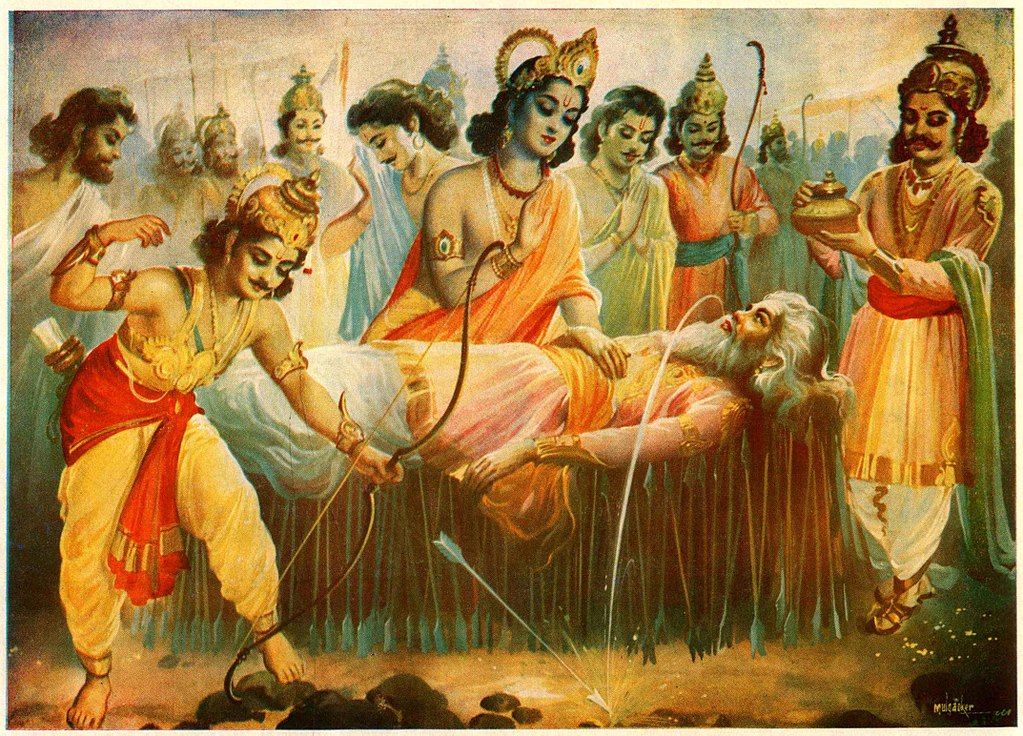Top 10 Facts About Bhishma Pitamah

In the intricate tapestry of Hindu mythology, Bhishma Pitamah stands out as a figure deserving profound respect and captivation. As a central character in the epic Mahabharata, Bhishma's life unfolds as a narrative interwoven with themes of loyalty, sacrifice, and unwavering commitment. This article delves into the top 10 facts that illuminate the legendary persona of Bhishma Pitamah.

1. Founder of the Kuru Dynasty:
Bhishma Pitamah, also recognized as Devavrata, is a descendant of the union between King Shantanu and the river goddess Ganga. His birth was accompanied by celestial occurrences, and his fate became intricately connected with the destiny of the Kuru dynasty.
2. The Vow of Chastity:
A pivotal aspect of Bhishma's life was his pledge of celibacy, a commitment made to ensure the happiness of his father, King Shantanu, and to refrain from competing for the throne himself. This vow earned him the title "Bhishma," meaning "terrible" or "formidable."
3. Unique Control over Death:
Blessed with the boon of choosing the timing of his own death, Bhishma Pitamah became nearly invincible on the battlefield. His defeat could only be orchestrated if he willingly relinquished his life.
4. Educator and Mentor:
Playing a crucial role in the education of the Kuru princes, including the iconic Pandavas and Kauravas, Bhishma's teachings were deeply rooted in dharma (righteousness), providing a moral compass for the young warriors.
5. Admiration for Krishna:
Despite his formidable warrior status, Bhishma held profound reverence for Lord Krishna. During the Kurukshetra War, he acknowledged Krishna's divine nature and even withstood Krishna's divine vision, revealing the cosmic form of the Lord.
6. The Dilemma with Shikhandi:
In a critical moment of the Kurukshetra War, Bhishma faced a dilemma when confronted by Shikhandi, originally born female but later transformed into a male through a boon. Bhishma, refusing to engage in battle against Shikhandi, experienced a moment exploited by the Pandavas, leading to his downfall.
7. A Shower of Arrows:
Bhishma's mastery in archery was unparalleled. Throughout the Kurukshetra War, he unleashed a relentless barrage of arrows, casting a shadow over the sky and earning him the epithet "Shara-sangraha."
8. Bhishma Nirvana Ekadashi:
Bhishma Pitamah's demise unfolded on the sacred day of Ekadashi during the Magha month. His departure was marked by profound wisdom and teachings shared with Yudhishthira, encapsulating the essence of dharma.
9. Posthumous Narrator:
Following his death, Bhishma assumed a unique role in the Mahabharata as a posthumous narrator. Conveying the knowledge of dharma to Yudhishthira during the Anushasana Parva, he provided guidance for righteous living.
10. Enduring Legacy and Reverence:
Bhishma Pitamah's legacy endures through the ages, revered as a symbol of duty, sacrifice, and unwavering commitment to dharma. His life serves as an everlasting source of inspiration for devotees, embodying timeless values embedded in Hindu mythology.
Conclusion:
The saga of Bhishma Pitamah transcends temporal and cultural boundaries, leaving a lasting impact on the collective consciousness. Through his steadfast principles and selfless sacrifices, Bhishma stands as a guiding light, inspiring generations to embrace righteousness amid adversities.

